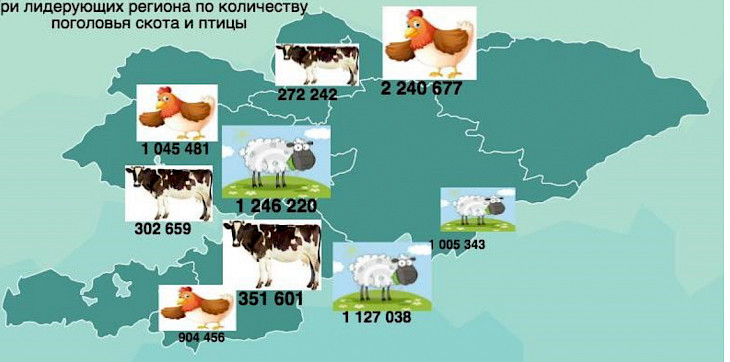Kyrgyzstan ranks last in methane emissions among Central Asian countries, the Ministry of Agriculture, Food Industry, and Land Reclamation of Kyrgyzstan reports.
According to the Ministry's Department for Agricultural Project Implementation, the total amount of methane emissions in the region reaches 625 million tons per year.
Kyrgyzstan's livestock sector contributes 4%, which is equivalent to 8 million tons of methane out of the country's total emissions. These figures were presented by Kazakh expert Zufar Tokpayev during a seminar on livestock and climate change mitigation held in Bishkek at the initiative of the World Bank.
The presented data was calculated based on existing methane emission coefficients for animals and a survey of 30 farms.
In Kyrgyzstan, the agricultural sector accounts for 47% of GDP, with 20% of the working population employed in this sector, Tokpayev noted.
The seminar discussed the practice of monetizing methane emissions—generating financial benefits from reducing or preventing methane emissions. For example, in agriculture, methane released during the decomposition of organic waste can be captured and used as an energy source. Programs that encourage methane use not only reduce emissions but also generate income from the sale of the produced energy.
Methane is a greenhouse gas that contributes more to air temperature increases than carbon dioxide or nitrous oxide, even though its share of global emissions is only 20%. This is due to the gas's ability to trap heat in the atmosphere.
Methane is emitted by the oil and coal industries, agriculture, and through the breakdown of organic waste, including livestock manure and wastewater systems.
Capturing and using methane provides opportunities for climate change prevention, cleans the air, offers financial incentives for businesses, and enhances energy security, according to the Ministry's report.
CentralasianLIGHT.org
October 9, 2024

